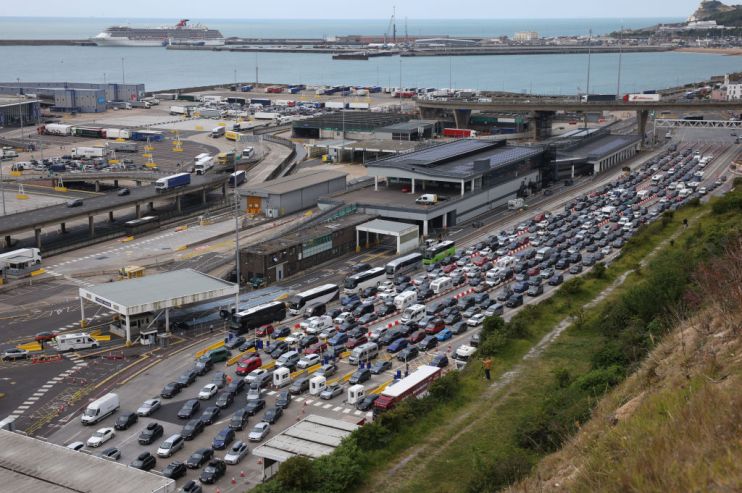Port of Dover chief warns post-Brexit checks will be detrimental to UK trade and travel

The Port of Dover’s chief executive has warned that post-Brexit biometric controls will be detrimental to the UK’s trade and travel, as they will significantly increase border delays.
“If we are forced to commit to an inadequate process it will have a rapid and significant detriment on trade,” chief executive Doug Bannister said.
Dover is in fact the UK’s biggest roll-on roll-off port and handles £144bn worth of goods.
Set to be introduced in May, the EU’s biometric entry-exit system (EES) will require all non-Schengen nationals entering the bloc to have their fingerprints scanned and photo taken.
At Dover, controls will be implemented by the French border police.
According to the port, the system will cause an average delay of two-minute per person compared with the current 45 to 90 seconds.
This could lead to queues of up to 17 miles, the Telegraph first reported.
The port has seen significant disruption over the summer, as thousands of travellers were stuck in hour-long bottlenecks over the school break.
UK authorities blamed French authorities for inadequate staffing levels at the port, while French politicians cited Brexit as the reason behind the lengthy queues.
According to latest data, the port in the six weeks between mid-July and the first week of September saw 1.7 million passengers pass through its gates – over half of the full-year total for 2021.
Numbers, however, remain well below the 11 million record before the pandemic.